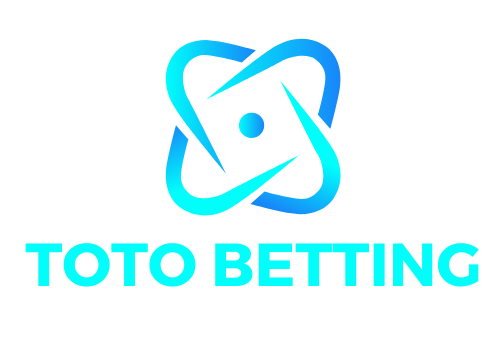Understanding Legal Limitations on Betting Content and Media
In an age where digital platforms dominate the landscape and the allure of gambling permeates various facets of entertainment, the legal landscape surrounding betting content and media has become increasingly complex. From sports betting analyses to online casino reviews, the dissemination of betting-related information raises numerous legal considerations that content creators and media platforms must navigate diligently. In this comprehensive exploration, we delve into the intricate world of legal limitations surrounding betting content and media, dissecting key considerations that both creators and platforms must understand to operate within the bounds of the law.
The allure of betting and wagering has long been intertwined with human culture, dating back centuries. However, in recent years, advancements in technology have transformed the landscape, making gambling more accessible than ever before. From online sports betting to virtual casinos, individuals now have a myriad of options at their fingertips, often facilitated by engaging and immersive content.
Yet, as the popularity of betting content grows, so too does the scrutiny from regulatory bodies and lawmakers. Many jurisdictions impose strict regulations on gambling activities, both online and offline, to safeguard against issues like addiction, fraud, and money laundering. Consequently, content creators and media platforms must navigate a complex web of laws and regulations to ensure compliance and mitigate legal risks.
The Regulatory Landscape
Understanding the regulatory framework governing betting content is paramount for creators and platforms alike. The landscape varies significantly from one jurisdiction to another, with some regions embracing legalized gambling while others impose stringent restrictions or outright bans. For instance, while countries like the United Kingdom have well-established regulatory bodies like the UK Gambling Commission overseeing gambling activities, others may have more fragmented or ambiguous regulatory structures. Creators must familiarize themselves with the laws applicable to their target audience to ensure compliance and avoid legal pitfalls.
Age Restrictions and Responsible Gambling
A fundamental legal consideration in the realm of betting content is the age of the audience. Most jurisdictions have strict age requirements for engaging in gambling activities, with minors prohibited from participating. Consequently, content creators must take measures to ensure their content is not accessible to underage individuals. Moreover, promoting responsible gambling practices is crucial to mitigate the risk of harm associated with excessive gambling. Content that glamorizes or encourages irresponsible gambling behavior can not only violate legal standards but also have detrimental effects on vulnerable individuals.

Disclosure and Transparency
Transparency is key when it comes to betting content. SUREMAN Creators and platforms must provide clear and conspicuous disclosures regarding any affiliations, sponsorships, or financial interests that could influence the content they produce. Failure to disclose such information not only violates legal standards but also erodes trust among viewers. Whether it’s disclosing sponsored partnerships with online casinos or affiliations with sports betting platforms, transparency fosters integrity and accountability within the industry.
Avoiding Misleading Information
Legal limitations extend to the accuracy of information provided in betting content. Misleading statements or false promises regarding betting outcomes or probabilities can have serious consequences. Not only can such practices harm consumers, but they can also lead to legal challenges for creators and platforms. It is imperative for content creators to ensure that any information presented is accurate, verifiable, and free from deceptive practices.
Licensing Requirements
Depending on the nature of the content, licensing requirements may apply. For instance, operators of gambling websites or platforms offering betting advice may need to obtain specific licenses to operate legally. Failure to comply with licensing regulations can result in severe penalties, including fines or even criminal prosecution. Creators and platforms must familiarize themselves with the licensing requirements applicable to their jurisdiction and ensure full compliance to avoid legal repercussions.
Advertising Restrictions
Advertising regulations play a significant role in shaping the landscape of betting content and media. Many jurisdictions impose strict guidelines on the advertising of gambling products or services, including restrictions on where and how such content can be displayed. For example, advertisements for gambling must adhere to strict guidelines regarding content placement and must not target vulnerable populations such as minors or problem gamblers. Creators and platforms must carefully navigate these regulations to ensure compliance and avoid legal challenges.
Protection of Vulnerable Individuals
Legal limitations aim to protect vulnerable individuals, such as problem gamblers or those susceptible to gambling addiction. Content creators and platforms must take measures to ensure their content does not exploit or target such individuals. This may involve implementing age verification mechanisms, providing resources for responsible gambling, or refraining from using tactics that encourage excessive or addictive behavior. By prioritizing consumer protection, creators and platforms can mitigate the risk of legal scrutiny and contribute to a safer gambling environment.
Compliance with Anti-Money Laundering Laws
Gambling activities are often associated with the risk of money laundering and other financial crimes. As such, creators and platforms must comply with anti-money laundering laws to prevent illicit activities from taking place on their platforms. This may involve implementing robust KYC (Know Your Customer) procedures, monitoring transactions for suspicious activity, and reporting any suspicious behavior to relevant authorities. By adhering to these regulations, creators and platforms can contribute to the integrity and legitimacy of the gambling industry while mitigating legal risks.
International Considerations
In an increasingly globalized world, creators and platforms must be mindful of the international implications of their betting content. Legal standards and cultural attitudes towards gambling vary widely across borders, necessitating a nuanced understanding of each jurisdiction’s laws and regulations. Creators operating in multiple jurisdictions must adapt their content and practices to comply with local laws, which may require significant resources and expertise. By staying informed about international legal considerations, creators and platforms can expand their reach while minimizing legal risks.
Staying Updated and Seeking Legal Counsel
Given the evolving nature of gambling regulations, staying updated on changes in the legal landscape is crucial for creators and platforms. Regulatory bodies may introduce new laws or guidelines that impact the way betting content is produced and disseminated. As such, creators must remain vigilant and adapt their practices accordingly to ensure compliance. Additionally, seeking legal counsel can provide valuable guidance and assistance in navigating complex legal issues. Experienced legal professionals can help creators and platforms understand their obligations under the law and develop strategies to mitigate legal risks effectively.
Navigating the legal limitations on betting content and media requires a thorough understanding of regulatory frameworks, responsible practices, and compliance requirements. By adhering to these principles, creators and platforms can engage with their audience responsibly while mitigating the risk of legal consequences. In an industry where compliance is paramount, staying informed, transparent, and proactive is essential for long-term success and sustainability.







